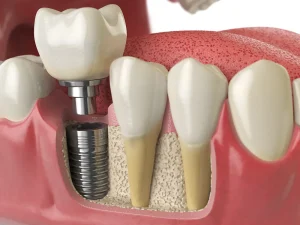Acne During Pregnancy – How to Prevent Acne During Pregnancy
3 min read
While many pregnant women don’t mind getting the occasional breakout of acne, pregnancy-related acne can be embarrassing and cause scarring. Fortunately, there are many methods of acne treatment, both at home and at the doctor’s office. Although acne treatments for pregnancy are available, they may not be right for you, or your unborn child. Listed below are some tips for treating acne during pregnancy. Follow these tips to minimize the likelihood of acne and scarring, and make sure you’re not risking your pregnancy.
The main factor causing pregnancy-related acne is hormonal changes in the body. Pregnancy increases levels of two hormones that are responsible for acne occurrences: androgens and progesterone. Both hormones play important roles in reproductive health and development, but they also cause the skin to produce excess sebum. This oil clogs pores and harbors bacteria. Acne during pregnancy generally clears up once the hormones return to normal levels.
One of the causes of acne during pregnancy is a high-level of androgens in the body, which help prepare the cervix for labor. Acne during pregnancy is often accompanied by an increase in oil production on the skin. Although the causes of acne during pregnancy vary from person to person, most pregnant women had acne before becoming pregnant. Although pregnancy can increase the risk of acne, it is still important to consult a doctor to discuss your individual symptoms.
While some treatments for acne during pregnancy can harm the unborn child, some can help alleviate the symptoms and prevent future breakouts. To reduce the chances of developing acne during pregnancy, follow some tips for self-care. First of all, consult your OB-GYN before changing any aspects of your health during pregnancy. You should also avoid over-the-counter products containing chemicals. In addition to changing your lifestyle and diet, you should seek professional medical advice for pregnancy acne.
Acne during pregnancy is common in pregnancy, but it’s not a serious problem for most women. Acne during pregnancy can be mild or severe, and it can occur at any stage in the pregnancy. Pregnancy is not all bad for your skin. With proper care, pregnancy can improve your complexion and give you the famed pregnancy glow. The following tips will help you keep your skin looking youthful and glowing throughout the months. It’s also important to remember that acne during pregnancy is temporary, and can easily be treated.
Topical treatments for acne during pregnancy may be an option if the condition is severe. However, antibiotics are not recommended during pregnancy as they can affect the fetal development. Although topical creams and lotions are safe to use during pregnancy, there are many risks associated with them. You should consult your healthcare provider before using any topical medications for acne during pregnancy. It’s important to avoid acne medications, especially antibiotics, as well as any other treatments, that may be harmful to your health and the development of your child.
To treat acne during pregnancy, you should wash your face with a mild soap twice a day and keep it clean. Scrubbing can irritate your skin. Also, be sure to wash your hair on a regular basis. To reduce the risk of acne during pregnancy, you should choose products with low alcohol content. Apply sunscreens and cosmetics sparingly. If you can’t avoid soaps, use a gentle face wash to remove the products.






